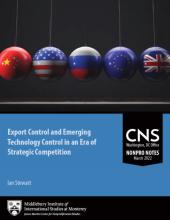New export controls on semiconductors to Russia, in combination with sanctions impacting the Russian economy. Some estimates put the trade of semiconductors to Russia at $50 billion.[1] But these impressive number bely the fact that Russia buys end products with chips and integrated circuits and does not have a strong industrial base to produce cutting edge semiconductors themselves despite attempts by the Kremlin to build a domestic production capacity.[2]
Russia
Although the economic sanctions wielded by the West against Russia do not target its pharmaceutical industry or medical supply chain, the resulting ripple effects may adversely impact both. Since the early 2000s, Russia has had a keen interest in developing its biotech industry. This included both the agricultural and the pharmaceutical sector. While the agricultural sector was relatively successful and Russia rose to become the world’s largest provider of wheat, the pharmaceutical sector did not achieve the same level of growth. Russia relies heavily on the international market, mainly from its European trade partners, to cover the quantity and diversity of medical drugs its citizens consume. In 2019, Russia was importing 70% of the drugs the nation was consuming. Russia’s pharmaceutical industry struggles to domestically produce an adequate amount of medical drugs and is therefore reliant upon imports.
Since the Russian Federation’s invasion of Ukraine that began in late February, the US has spearheaded sanctions efforts targeting key entities in strategic sectors and individuals in Russia. While media coverage frequently focuses on those impacted by the sanctions, little attention is often given to the process through which the sanctions are authorized. In the instance of Ukraine, one of the authorities the United States can leverage is a lesser-known law: the Countering American Adversaries Through Sanctions Act (CAATSA).




